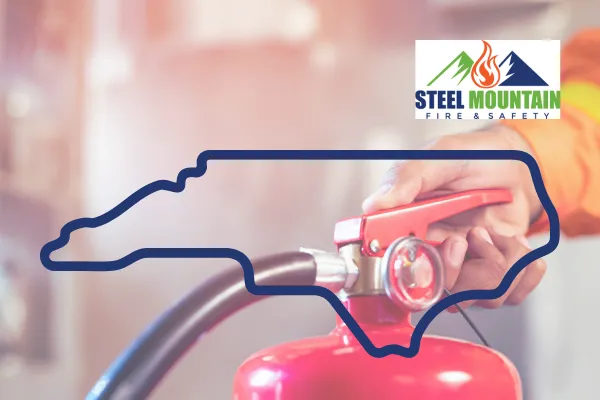
Fire Safety Regulations Every North Carolina Business Owner Should Know
Fire safety is a critical aspect of running a business, and understanding the regulations that govern fire safety in North Carolina is essential for compliance and the protection of employees and customers. Below are key regulations and guidelines that every business owner in North Carolina should be aware of.
1. North Carolina Fire Code
The North Carolina Fire Code (NCFC) is the primary regulation that outlines fire safety requirements for businesses. It is based on the International Fire Code and includes specific provisions tailored to the state's needs. Key areas covered include:
Building Construction: Requirements for fire-resistant materials and construction methods.
Occupancy Limits: Guidelines on the maximum number of occupants allowed in a building based on its use and layout.
Egress Requirements: Regulations regarding exits, including the number, size, and accessibility of exits.
2. Fire Extinguisher Requirements
Every business must have appropriate fire extinguishers based on the type of hazards present. The NCFC specifies:
Type of Extinguishers: Businesses must have the correct type of extinguishers (e.g., Class A, B, C) based on the materials present.
Placement: Extinguishers should be easily accessible and placed within 75 feet of any point in the building.
Maintenance: Regular inspections and maintenance are required to ensure extinguishers are functional.
3. Fire Alarm Systems
Businesses are required to have fire alarm systems that meet specific standards, especially in larger buildings or those with high occupancy. Key points include:
Installation: Fire alarms must be installed in accordance with the NCFC and NFPA (National Fire Protection Association) standards.
Testing and Maintenance: Regular testing and maintenance of fire alarm systems are mandatory to ensure they function correctly in an emergency.
4. Emergency Exit Plans
Every business must have a clear emergency exit plan that is communicated to all employees. This includes:
Evacuation Routes: Clearly marked and unobstructed paths to exits.
Emergency Lighting: Adequate lighting to guide occupants to safety during a power outage.
Training: Regular fire drills and training for employees on evacuation procedures.
5. Fire Safety Inspections
North Carolina businesses are subject to regular fire safety inspections by local fire marshals. These inspections assess compliance with fire codes and regulations. Business owners should:
Prepare for Inspections: Ensure that all fire safety equipment is in place and functioning.
Address Violations Promptly: Any violations noted during inspections should be addressed immediately to avoid penalties.
6. Local Regulations
In addition to state regulations, local municipalities may have additional fire safety requirements. Business owners should check with their local fire department or municipal office to ensure compliance with any local ordinances.
Conclusion
Understanding and adhering to fire safety regulations is crucial for every business owner in North Carolina. By following the guidelines set forth in the North Carolina Fire Code and ensuring proper fire safety measures are in place, business owners can protect their employees, customers, and property from the devastating effects of fire. Regular training, inspections, and updates to safety protocols will help maintain a safe environment for all.